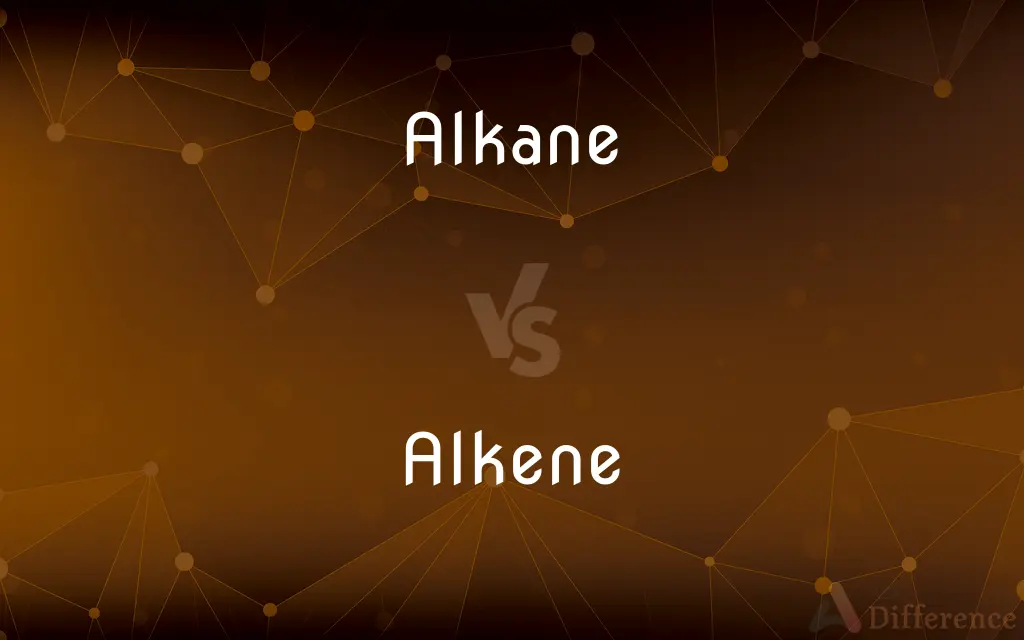Alkane vs. Alkene — What's the Difference?

Difference Between Alkane and Alkene
ADVERTISEMENT
Compare with Definitions
Alkane
In organic chemistry, an alkane, or paraffin (a historical trivial name that also has other meanings), is an acyclic saturated hydrocarbon. In other words, an alkane consists of hydrogen and carbon atoms arranged in a tree structure in which all the carbon–carbon bonds are single.
Alkene
In chemistry, an alkene is a hydrocarbon containing a carbon–carbon double bond.Alkene is often used as synonym of olefin, that is, any hydrocarbon containing one or more double bonds. Two general types of monoalkenes are distinguished: terminal and internal.
Alkane
Any of the series of saturated hydrocarbons including methane, ethane, propane, and higher members.
Alkene
Any of a series of unsaturated, aliphatic hydrocarbons with a carbon-carbon double bond, having the general formula CnH2n.
Alkane
Any member of the alkane series.
ADVERTISEMENT
Alkene
(organic compound) An unsaturated, aliphatic hydrocarbon with one or more carbon–carbon double bonds. Category:en:Carbon
Alkane
(organic compound) Any acyclic saturated hydrocarbon (methane, ethane, etc.). Category:en:Carbon
The carbon chain of an alkane may be linear or branched, but must not contain loops (cycles); its chemical formula is of the form CnH2n+2.
Alkene
Any unsaturated aliphatic hydrocarbon
Alkane
A non-aromatic saturated acyclic hydrocarbon with the general formula CnH(2n+2). A member of the alkane series.
Alkane
A non-aromatic saturated hydrocarbon with the general formula CnH(2n+2)
Share Your Discovery

Previous Comparison
Guqin vs. Gushing
Next Comparison
Delivery vs. Fastball














































